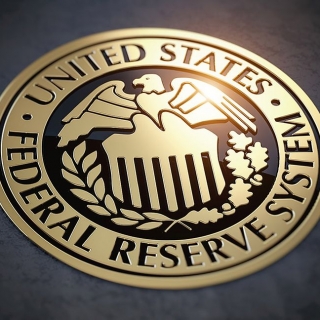


Federal Reserve officials met on Tuesday armed with new economic data that could give more weight to their concerns that Trump administration policies, or at least the intense uncertainty around them, will slow growth in the coming months.
Shortly before the start of the two-day policy meeting, the U.S. Commerce Department reported that U.S. retail sales fell 0.9% in May, exceeding the expected 0.7% decline in a Reuters poll of economists and marking the biggest drop in four months. The U.S. central bank itself then released a report showing a surprise contraction in industrial production last month.
The data, however, was hardly clear-cut.
The retail sales report, with revisions also showing a small drop in April, was heavily influenced by slower auto sales after a surge earlier in the year driven by consumers hoping to avoid 25% levies on imported vehicles. Bad weather may have also been an influence, said Bradley Saunders, a North America economist at Capital Economics, with sales of an underlying group of goods more closely related to broader economic conditions suggesting "overall consumption continues to look healthy."
The 0.2% drop in industrial production, however, pushed overall capacity utilization down 77.4%, its lowest level since January.
A separate survey showed sentiment among homebuilders slid to the lowest point in two and a half years amid weak demand among buyers and high financing costs, a factor tied to monetary policy and the Fed's reluctance to reduce interest rates any further until it is clear that President Donald Trump's tariff policies won't lead to a persistent increase in inflation.
Recent inflation data has been tame despite rising tariffs, but the Fed is still trying to reduce the pace of price increases to 2% after it surged in the years following the COVID-19 pandemic - with tariff-driven price hikes still seen as on the way.
The risk of rising prices remains a dominant concern for the central bank despite signs the economy overall may be slowing. Trump's final tariff plans remain unclear, with trade deals promised but still not done with dozens of nations he has threatened to tax, and one-off proposals to levy specific goods like appliances that may or may not be implemented.
Ongoing hostilities between Iran and Israel, meanwhile, have boosted the price of oil, another risk the Fed must contend as it prepares to release on Wednesday a new policy statement and updated policymakers' economic and interest rate projections.
James Knightley, chief international economist at ING, noted that the retail sales data is not adjusted for inflation, and the drop, once accounting for price rises, "paints a weak picture that reflects subdued consumer confidence readings. Households are nervous that tariff-induced price hikes will squeeze spending power while respondents have become much more cautious on job prospects, and this suggests that consumer spending will continue to cool through this year."
How to balance the risk of slowing growth against the risk of anticipated higher inflation will be at the center of Fed policymakers' debate on Tuesday and Wednesday, along with likely discussion of the implications of the crisis in the Middle East.
Source: Investing.com
Japan's annual inflation rate edged down to 2.9% in November 2025 from October's 3-month high of 3.0%. Core inflation stood at 3.0%, keeping the same pace as in October and aligning with estimates. Mo...
Goldman Sachs sees gold prices climbing 14% to $4,900 per ounce by December 2026 in its base case, it said in a note on Thursday, while citing upside risks to this view due to a potential broadening o...
The BRICS group of countries is increasingly being considered as an alternative for global diplomacy and cooperation amidst increasing tariff and protectionist policies from the United States. A numbe...
Applications for US unemployment benefits fell after a spike in the previous week, underscoring the choppy nature of the data at this time of year. Initial claims decreased by 13,000 to 224,000 ...
Annual inflation in the United States (US), as measured by the change in the Consumer Price Index (CPI), fell 2.7% in November, according to a report by the US Bureau of Labor Statistics (BLS) on Thur...
US stocks closed sharply higher on a triple-witching Friday, with the S&P 500 rising 0,9%, the Nasdaq 100 gaining 1.4%, and the Dow Jones adding more than 180 points, extending gains from the previous session as technology stocks...
European equities closed higher on Friday, with the STOXX 50 up 0.6% and the STOXX 600 rising 0.4% to a fresh record, boosted by expectations of further Fed rate cuts next year and fading bets that the ECB will raise borrowing costs in...
Gold (XAU/USD) Gold (XAU/USD) regains ground on Friday, edging modestly higher after earlier weakness, even as a resilient US Dollar (USD) caps upside momentum. At the time of writing, XAU/USD trades around $4,345, recovering from a daily low near...
 Fed Governor Christopher Waller said Wednesday that the Fed is in no rush to cut interest rates, given the current outlook, according to...
Fed Governor Christopher Waller said Wednesday that the Fed is in no rush to cut interest rates, given the current outlook, according to...
 The Bank of Japan (BOJ) is expected to raise interest rates on Friday to a three-decade high, from 0.5% to 0.75%, signaling readiness for further...
The Bank of Japan (BOJ) is expected to raise interest rates on Friday to a three-decade high, from 0.5% to 0.75%, signaling readiness for further...
 European stocks finished in positive territory on Thursday as traders positioned for central bank decisions today.
The pan-European Stoxx 600 was...
European stocks finished in positive territory on Thursday as traders positioned for central bank decisions today.
The pan-European Stoxx 600 was...
 The United States ordered a blockade of Venezuelan oil tankers because the Trump administration believes President Nicolás Maduro's regime is acting...
The United States ordered a blockade of Venezuelan oil tankers because the Trump administration believes President Nicolás Maduro's regime is acting...